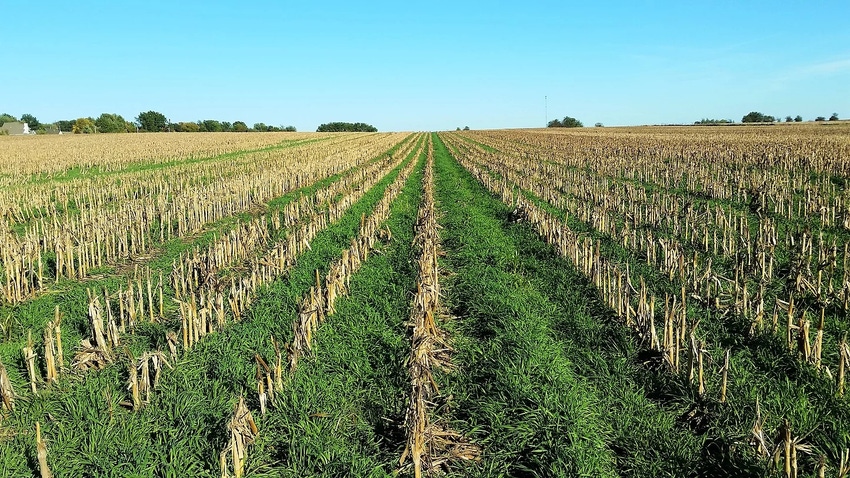November 25, 2020

The Allegan Conservation District and Delta Institute will use a performance-based program to increase conservation practices on farm fields in the Kalamazoo River Watershed, located primarily in Allegan County, Mich., near Lake Allegan and the Kalamazoo River.
Called a “reverse auction,” it is unlike a typical cost-share program that pays a flat percentage of the cost of a conservation practice. Laura Campbell, manager of the Agricultural Ecology Department of Michigan Farm Bureau, says that the reverse auction concept maximizes water quality improvements by comparing payments to performance-based results.
Farmers participating in the auction submit a bid reflecting their cost to install new conservation practices, such as cover crops or filter strips. The bidding period for the new Kalamazoo River Watershed project is expected to open in December and close Feb. 28.
Using funds from a grant through the EPA’s Great Lakes Restoration Initiative, the Delta Institute, a nonprofit environmental organization focused on water quality improvement, will select and purchase winning producer bids based on the cost effectiveness of the practice and the amount of nutrient and sediment runoff achieved.
“Performance-based programs are a targeted approach to investing in conservation when traditional funding is limited,” Campbell says. “Instead of paying for specific farm practices, this concept directs payments that are based on the net environmental improvements resulting from a comprehensive set of practices.”
Noted success
The project is an effort to reduce phosphorus runoff and soil erosion to help farmers protect water quality. It builds on a similar performance-based conservation grant program conducted previously within Allegan County’s Rabbit River Watershed.
Local farmers participating in that project were able to reduce sediment runoff by an estimated 1,700 tons through the implementation of cover crop practices on 1,067 acres, while also integrating reduced tillage and no-till practices on another 1,530 acres.
“The launch of the reverse auction represents an opportunity to build on the partnerships built throughout Allegan County’s farming community,” says Brian Talsma, Allegan Conservation District watershed technician. “Success here will demonstrate, yet again, another effective method to fund conservation efforts and improve water quality in this and surrounding watersheds.”
Delta Institute senior specialist Olga Lyandres adds, “Our efforts in Allegan County demonstrate how conservation programs can be implemented in an innovative way that prioritizes practice performance and associated environmental outcomes, rather than simply how many acres are enrolled. Our hope is that similar programs will become more readily available in agricultural communities throughout the Midwest.”
ACD will host the reverse auction for farm fields located near Lake Allegan and the Kalamazoo River. Farm Bureau members located in townships in the project area should look for a flyer and more information to be sent by mail in the next couple of weeks.
The project team will host informational meetings Dec. 10 and Jan. 7. Contact Talsma at 269-941-6108 or [email protected], or check out the project’s website for more information.
Source: MFB, which is solely responsible for the information provided and is wholly owned by the source. Informa Business Media and all its subsidiaries are not responsible for any of the content contained in this information asset.
You May Also Like




